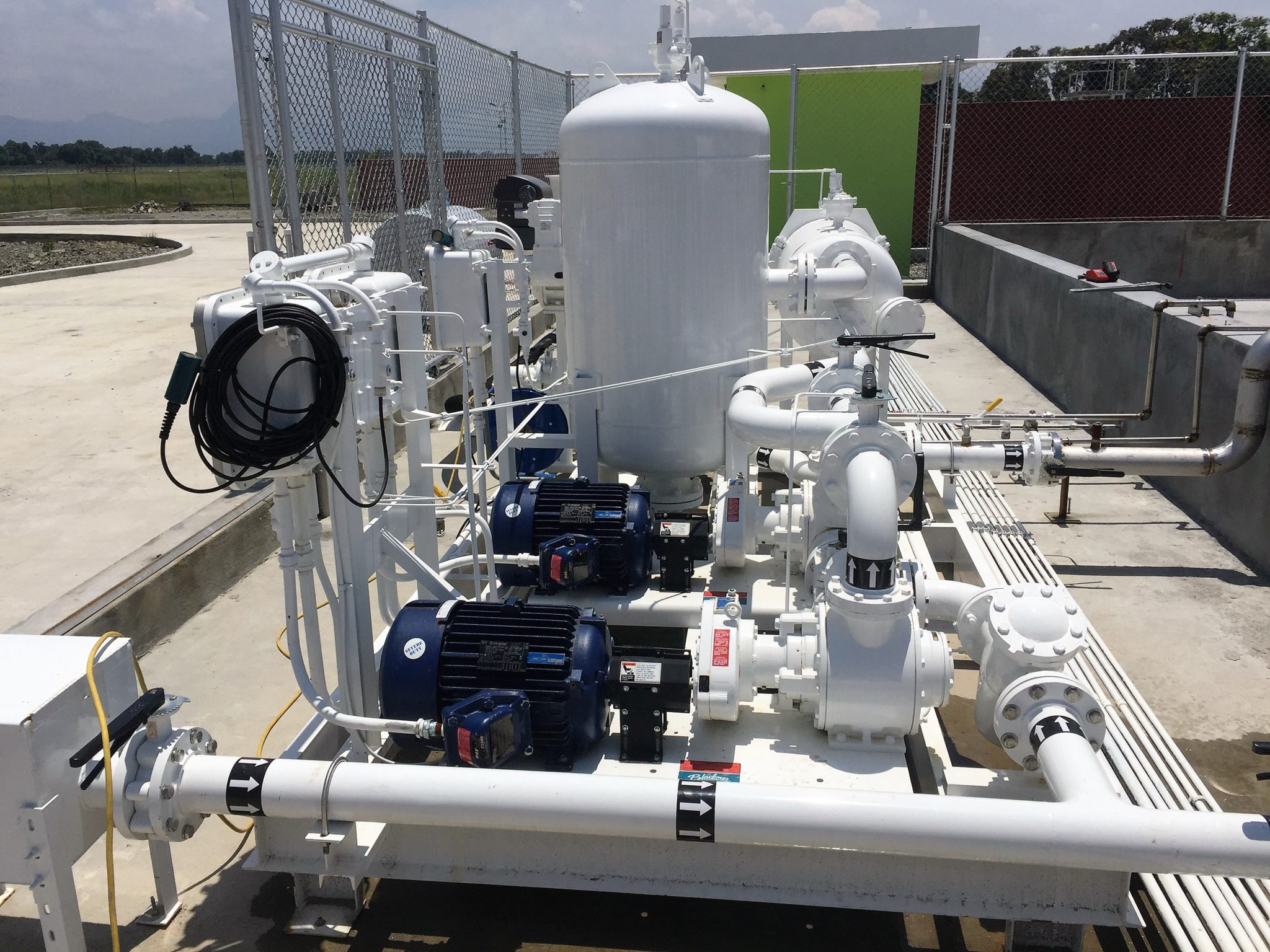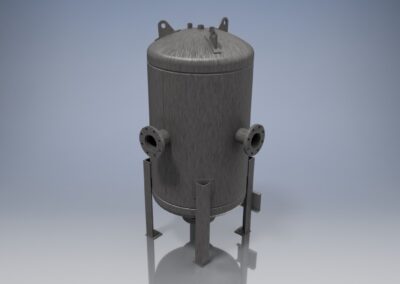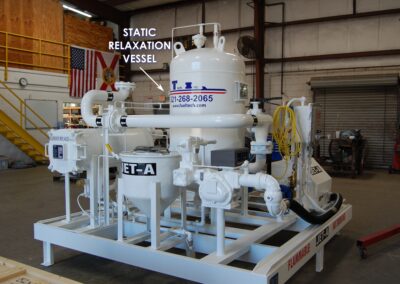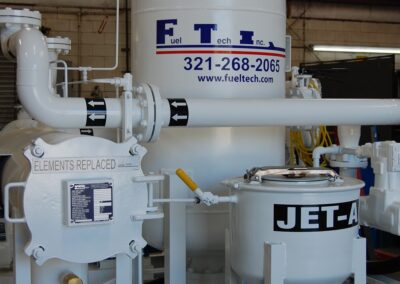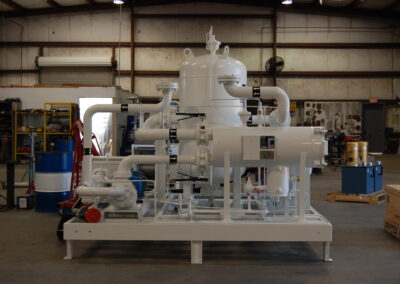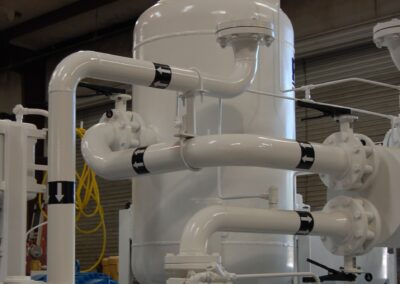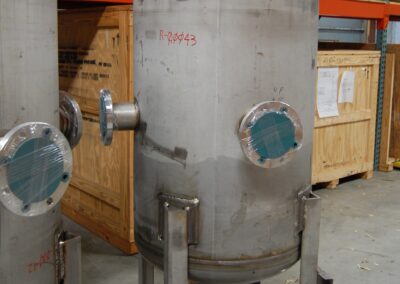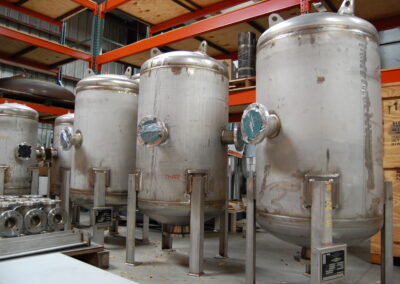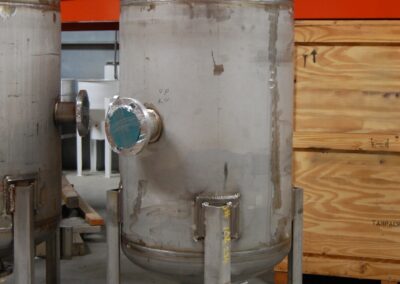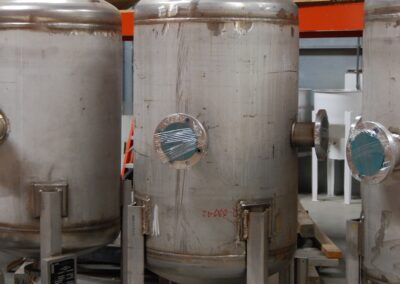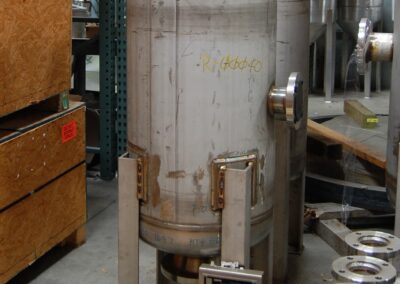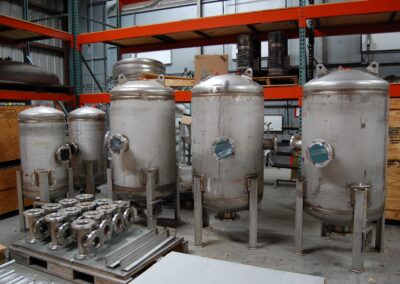Static Relaxation Vessels
Fuel Tech’s ASME Code Static Relaxation Vessels are designed to dissipate static charge that has built up in jet fuel.
What’s the Danger?
Electrostatic charges are generated by the friction created when the molecules in jet fuel rub together. The charge increases as friction increases and also increases as more and more molecules in a given volume become agitated. When these charges move to the wall of the pipe or tank containing the fuel, they are grounded and no longer pose a hazard. Some fuels however are considered “low conductivity” fuels, meaning electrostatic charges cannot move as easily to a grounded surface. Low conductivity fuels can thus hold a higher charge and pose a higher risk of sparking.
Additionally, fuel filters can generate high charges due to the increased friction inherent to the filtration process. Friction increases as filters get finer, thus generating a higher static charge. This is especially dangerous for low conductivity fuels since they cannot dissipate the built-up charge as easily.
During fueling, a spark can jump from the “charged” fuel to an electrically unbonded object (i.e. a metal object that can build up an electric charge as it is not connected to grounded metal components), potentially causing a fire or worse.
So how can we lower the chances of something like this from happening to you?
Why Install a Static Relaxation Vessel?
Product Information
Fuel Tech’s Static Relaxation Vessels are built to customer specifications, but we have vessels available and in stock for the following systems:
- 100 gpm
- 300 gpm

